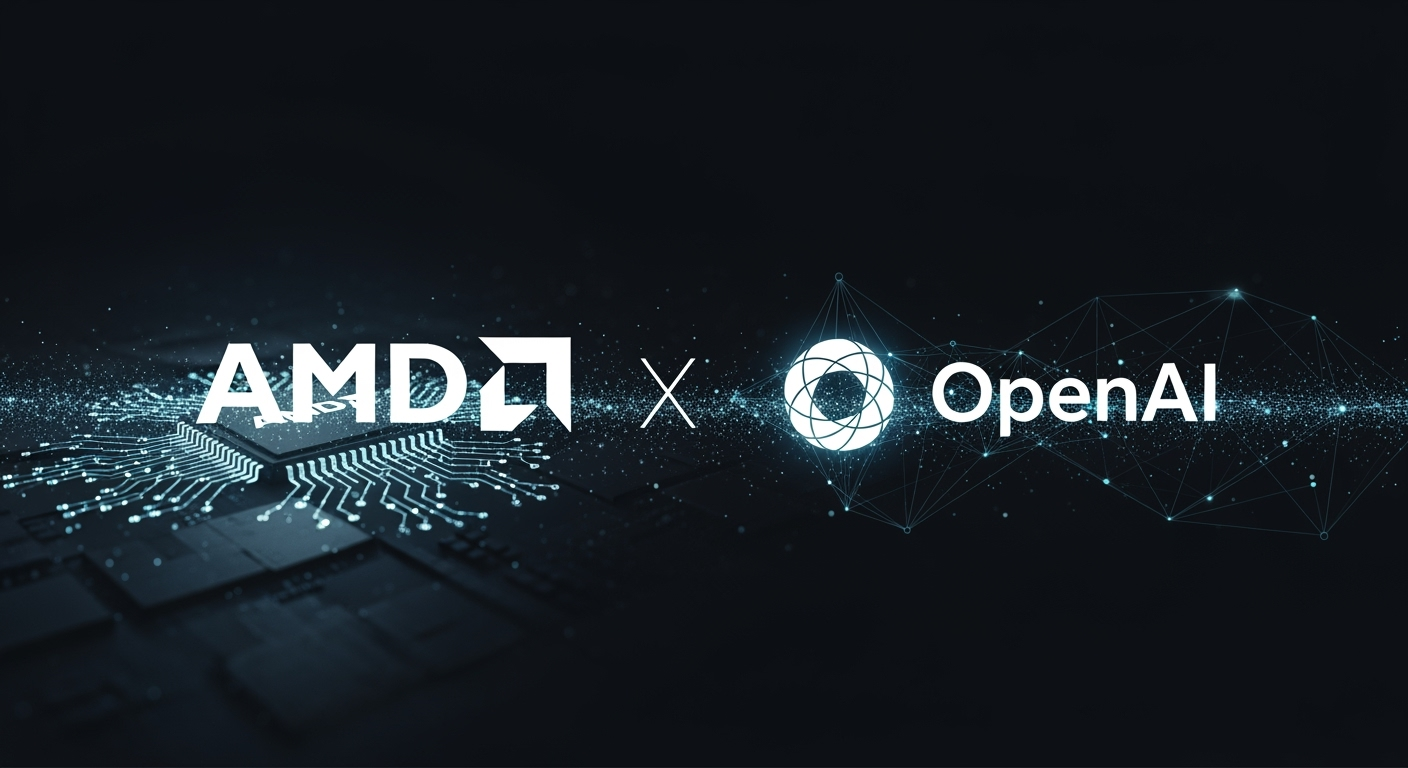AMD and OpenAI Strike Unusual Stock Warrant Deal for AI Chips

AMD and OpenAI: A Creative Stock Warrant Deal Fuels AI Ambitions
AMD and OpenAI have unveiled a groundbreaking partnership that reshapes how major AI infrastructure deals are financed. On Monday, the two companies announced an agreement for OpenAI to buy and help refine AMD's Instinct GPUs—direct competitors to Nvidia's dominant chips—while securing access to an immense 6 gigawatts of compute capacity from AMD over several years. The value? Tens of billions of dollars, but the real innovation is in how OpenAI will pay for it.
How Will OpenAI Pay for Billions in Chips?
Instead of a traditional cash transaction, OpenAI will pay AMD using stock warrants, granting the AI company up to 160 million AMD shares. These warrants will vest in stages as OpenAI hits agreed-upon performance and stock price milestones. For example, the final tranche requires AMD's share price to reach unprecedented levels—implying a market cap near $1 trillion. AMD shares soared from $165 to $214 following the news, reflecting investor excitement.
- Vesting milestones are tied to both stock performance and OpenAI's technical contributions.
- If OpenAI holds onto all its vested AMD shares, their value could approach $100 billion, according to UBS analyst Timothy Arcuri.
- More realistically, OpenAI is expected to sell shares incrementally to fund its chip purchases.
Why Is AMD Taking This Approach?
This structure allows AMD to finance OpenAI’s purchases without requiring immediate cash, essentially using future stock value to secure a key customer. For AMD, the endorsement from OpenAI is invaluable:
- It proves AMD’s AI GPUs are up to the task for cutting-edge workloads.
- The partnership is likely to accelerate AMD’s adoption among other cloud providers and enterprise customers.
UBS estimates that AMD could capture as much as 30% of the AI data center market from this deal, giving AMD a significant foothold as OpenAI builds out next-generation infrastructure.
How Does This Compare to Nvidia’s Moves?
While Nvidia has historically invested directly in OpenAI, gaining a stake in the AI leader, AMD’s deal is the reverse: OpenAI gets a stake in AMD. This strategic shift gives AMD a chance to break into a market long dominated by Nvidia.
Wall Street analysts acknowledge that this financing method is less attractive for AMD than the deals Nvidia has secured, but the validation and potential for broader adoption make it a calculated risk worth taking.
What Does It Mean for Investors and the AI Industry?
The real cost of this deal will be borne by AMD’s shareholders, especially if the stock price rises to meet the vesting milestones. If OpenAI sells shares to fund its purchases, institutional and retail investors will effectively finance the expansion of OpenAI’s compute power.
This creative financial engineering highlights the intense competition among semiconductor giants to power the next generation of AI, and the lengths companies will go to win marquee customers like OpenAI.
References
- Wall Street analysts explain how AMD’s own stock will pay for OpenAI’s billions in chip purchases
- AMD to supply 6GW of compute capacity to OpenAI in chip deal worth tens of billions
- AMD SEC Filing on Stock Warrants
- Nvidia plans to invest up to $100B in OpenAI
- OpenAI is building five new Stargate data centers with Oracle and Softbank





